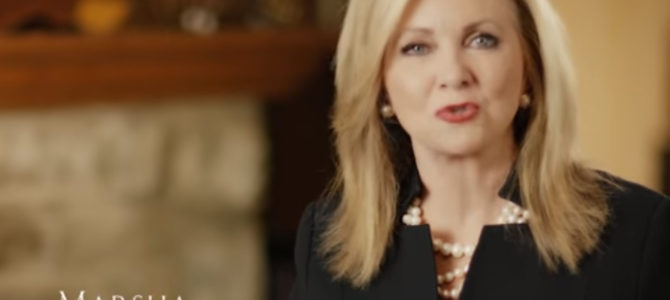
A campaign video of Republican Marsha Blackburn, running to replace Tennessee Sen. Bob Corker, has been pulled by Twitter due to a provocatively factual statement regarding Planned Parenthood’s side business of selling baby organs. It’s not the first time the social media giant has run interference for the abortion industry.
In the ad, Blackburn claims, “I fought Planned Parenthood and we stopped the sale of baby body parts. Thank God.” Fact check: True. A Twitter representative informed the campaign that this was “deemed an inflammatory statement that is likely to evoke a strong negative reaction.” Well, yeah. One hopes the sale of human body parts, which despite the histrionics from liberals after The Center for Medical Progress exposed Planned Parenthood, should arouse some strong negative — and positive — reactions.
Yet, setting aside the veracity of the claim or the debate itself, if this is the standard Twitter now uses to inject itself into campaigns, it will find itself banning almost every group from promoting political and ideological content, including every Planned Parenthood and NARAL promotion. In fact, you might as well shut down the entire platform. Unless, that is, Twitter has a political motive or ideological disposition that makes it find only certain positions inflammatory.
Most people who have been bombarded with Twitter accounts featuring swastikas and hammer-and-sickles over the past year-and-a-half are likely to find it extraordinary that an ad offering a traditional critique of the abortion industry should be especially incendiary to a sales team. Twitter is, after all, the platform on which liberals regularly accuse Republicans of the premeditated murder of children through the nefarious block-granting of Medicaid funds. Abortion is just one of the many debates that provoke strong negative reactions.
It’s not just the promotions; users buying those ads have been subjected to lopsided ideological tests on their personal accounts. When the pro-life group Live Action attempted to promote its own ads, Twitter claimed that the founder of the group was violating Twitter’s “hate, sensitive topics and violence” advertisement policy. Live Action could only be allowed to promote their group, according to the Twitter’s sales team, if the founder agreed to “remove current and past sensitive content from your website and Twitter feed.” This was puzzling, as Live Action founder Lila Rose was campaigning against violence.
Sure, pro-life groups were free to promote their content on Twitter, as long as they didn’t show pictures of ultrasounds — inflammatory? — or talk about Planned Parenthood in ways that upset Planned Parenthood. One of the offending tweets by Rose read: “Let’s set the record straight: @PPact is about abortion, not women’s health care. We can fund more worthy clinics instead. #DefundPP”
.@Twitter shut down our video ad, claiming it’s “inflammatory” & “negative.” Join me in standing up to Silicon Valley → RETWEET our message! pic.twitter.com/K3w4AMgW6i
— Marsha Blackburn (@VoteMarsha) October 9, 2017
Planned Parenthood was free to promote ads calling their adversaries extremists.
On the political front, this latest intrusion into politics will surely backfire. In truth, Twitter just gifted Blackburn an in-kind donation, helping not only bring attention to her campaign but to one of the animating issues of the conservative activist. “Join me in standing up to Silicon Valley,” says Blackburn.
Over the long term, this kind of meddling in political discourse only erodes the trust consumers have in the platform — on both sides. There will undoubtedly be increased pressure on Twitter to balance out these restrictive impositions on political ads. If they don’t, half their users will turn on them. If they do, all their users will turn on them. Perhaps they could start by limiting the number of liberal activists they hire.
Worse, people will again start demanding that Washington institute “fairness” regulations or treat giant tech companies as utilities. This is dangerous for free speech. But if Twitter and Facebook act as if they are unable to properly deal with accounts that engage in harassment and (genuine) extremism, yet have the time to ideologically curate promotions, these companies are essentially admitting they care about one but not the other.









